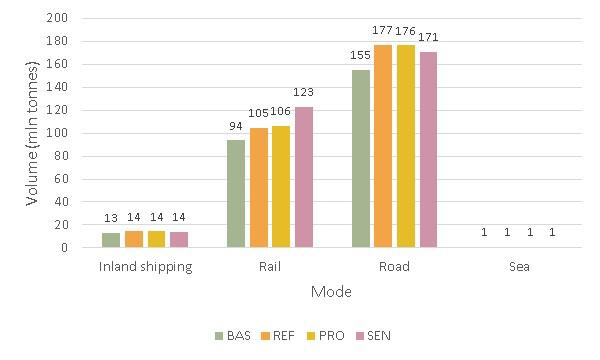We would like to inform all interested stakeholders that the recently updated Transport Market Study of RFC Rhine-Danube (RFC RD) is now available. You can download it via https://rfc-rhine-danube.eu/documents/
The update of this study was conducted in a joint project involving all 11 RFCs, which has enabled a harmonised structure and a harmonised methodology across all RFCs. The key conclusions included in the RFC RD-specific parts of the joint study are the following ones:
- A large proportion of the rail freight transport passing through the RFC and its border-crossing points involves Munich, Linz, East Slovakia, West Hungary, and Budapest as the typical origins. Also, outside the current corridor area different zones can be found that contribute to freight traffic on the RFC, such as the rest of Germany (especially the Rhine-Ruhr area and Hamburg), France, Italy, Poland, Serbia, Greece, and Ukraine.
- As far as the destinations are concerned, numerous zones benefiting from RFC RD’s services fall outside the current corridor area, such as areas in the rest of Germany (Rhine-Ruhr, Hamburg), Italy (Veneto), Serbia, Croatia and Bulgaria.
- The most important relation is between East Slovakia and Ostrava (Chechia). Other important relations are Landshut-Linz and Munich-Linz.
- On relations within the catchment area of RFC RD, rail freight transport has a share of 36% in the total amount of international freight transport. This is a volume of 94 million tonnes.
- The baseline scenario was the 2022 year. All three future scenarios (Reference, Projects and Sensitivity) show an increase in international freight transport along the RFC.

- Overall, the sensitivity scenario can be regarded as a potential maximum growth for rail, considering both economic developments and assuming that the network of RFC RD would fully comply with the mandatory TEN-T infrastructure standards by 2030.
- Finally, the results of the RAG/TAG survey conducted between September 2023 and January 2024 about the occurred and expected impact of the establishment of the RFCs are summarised in the study as well.
Our Management Board would like to take the opportunity to thank all respondents for their valuable input and time.
